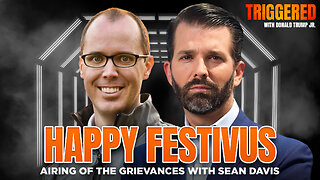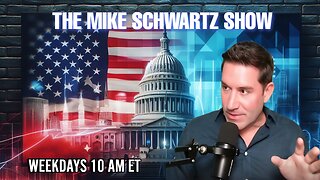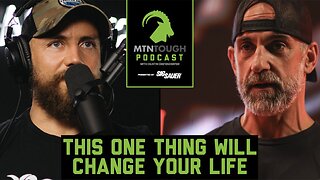Premium Only Content

The Importance of Content Personalization for Engagement (Unlocking Deeper Connections)
In an age where digital noise is at an all-time high, capturing and retaining audience attention is more challenging than ever. Businesses and brands are continually seeking effective strategies to engage their audiences, and one approach stands out above the rest: content personalization. By tailoring content to individual preferences, behaviors, and demographics, brands can foster deeper connections with their audiences, resulting in enhanced engagement and loyalty.
Understanding Content Personalization
Content personalization refers to the practice of customizing digital content based on the specific interests, preferences, and behaviors of individual users. This could include anything from personalized email campaigns to tailored product recommendations and targeted social media ads. The core idea is to create a unique experience for each user, making them feel valued and understood.
The power of content personalization lies in its ability to turn generic interactions into meaningful engagements. In a world where consumers are bombarded with content, personalized experiences stand out. According to various studies, personalized content can lead to significantly higher engagement rates, increased conversion rates, and improved customer satisfaction.
Why Content Personalization Matters
1. Enhanced User Experience
At the heart of effective content personalization is the commitment to enhancing user experience. Consumers today expect brands to understand their preferences and deliver relevant content accordingly. When users encounter personalized content, they are more likely to engage with it. A personalized approach not only meets the user's needs but also anticipates them, creating a seamless experience.
For instance, Netflix's recommendation algorithm suggests shows and movies based on viewing history, ensuring users always find something that piques their interest. This tailored approach significantly increases the likelihood that users will continue using the platform, illustrating the importance of personalization in retaining customers.
2. Increased Engagement Rates
Statistics reveal that personalized content can yield impressive results. Research indicates that personalized emails have open rates that are 29% higher than generic emails. Additionally, brands that employ personalization can see a 20% increase in sales. These figures highlight the undeniable impact of personalized content on user engagement.
When users feel that a brand speaks directly to them, they are more likely to interact with the content, whether that’s clicking through emails, engaging on social media, or making purchases. This heightened engagement leads to a cycle of continuous interaction, strengthening the relationship between the brand and the consumer.
3. Improved Conversion Rates
Content personalization doesn't just engage users; it can also drive conversions. Tailored recommendations and targeted content can guide users along the purchasing journey, making them more likely to complete a transaction. By analyzing user data, brands can present products or services that align closely with individual preferences.
For example, Amazon's "Customers who bought this also bought" feature is a classic example of effective content personalization. By suggesting complementary products, Amazon not only enhances the shopping experience but also encourages users to add more items to their carts, ultimately boosting conversion rates.
4. Building Customer Loyalty
In today's competitive landscape, customer loyalty is more critical than ever. Personalized content helps forge emotional connections between brands and consumers. When users feel recognized and valued, they are more likely to remain loyal to a brand.
Loyal customers are not only repeat buyers; they also become brand advocates, sharing their positive experiences with friends and family. Brands that prioritize personalization can cultivate a community of loyal customers who contribute to organic growth through word-of-mouth marketing.
Strategies for Effective Content Personalization
To harness the power of content personalization, brands must adopt a few key strategies:
1. Collect and Analyze Data
The foundation of effective personalization lies in data. Brands must collect data on user behavior, preferences, and demographics. This information can be gathered through website analytics, social media interactions, and customer feedback. Once data is collected, it must be analyzed to gain insights into user preferences, enabling brands to tailor their content accordingly.
2. Segmentation
Segmentation involves dividing the audience into smaller groups based on shared characteristics or behaviors. By creating targeted content for each segment, brands can ensure that their messaging resonates with specific audience groups. For example, a travel agency might segment its audience based on travel preferences, such as adventure seekers versus luxury travelers, and create personalized content that speaks to each group's desires.
3. Utilize Automation Tools
Automation tools can significantly streamline the personalization process. These tools enable brands to deliver personalized content at scale, ensuring that each user receives relevant messaging based on their behavior and preferences. For instance, email marketing platforms allow businesses to send targeted emails based on user activity, such as abandoned carts or previous purchases.
4. Continuous Testing and Optimization
Personalization is not a one-time effort; it requires continuous testing and optimization. Brands should regularly evaluate the effectiveness of their personalized content strategies, measuring engagement rates, conversion rates, and customer feedback. By identifying what works and what doesn't, brands can refine their approach, ensuring that their content remains relevant and effective.
Challenges in Implementing Content Personalization
While the benefits of content personalization are substantial, it’s important to recognize the challenges brands face when implementing these strategies.
1. Data Privacy Concerns
With increasing awareness of data privacy issues, consumers are more cautious about how their data is collected and used. Brands must navigate this landscape carefully, ensuring they comply with regulations like GDPR and CCPA while still delivering personalized experiences. Transparency in how data is used and offering consumers control over their information is crucial for building trust.
2. Over-Personalization
While personalization can enhance engagement, there’s a fine line between personalization and over-personalization. Users can feel uncomfortable if they perceive brands as intrusive or overly familiar. For instance, if a brand sends targeted messages that reveal too much about a user's behavior, it may lead to discomfort rather than engagement. Striking the right balance is key to successful personalization.
3. Resource Intensive
Implementing a robust personalization strategy requires significant resources. Brands must invest in data analytics tools, marketing automation platforms, and skilled personnel to analyze data and create tailored content. For smaller businesses, these investments can be a daunting hurdle. However, starting small and scaling up as resources allow can help overcome this barrier.
4. Integrating Across Channels
For personalization to be effective, it must be consistent across all customer touchpoints. This requires integrating data and messaging across various channels, including email, social media, and websites. Disjointed messaging can confuse consumers and dilute the personalized experience. Ensuring that all platforms work together harmoniously is essential for a cohesive approach.
The Future of Content Personalization
As technology continues to advance, the future of content personalization is bright. Emerging technologies like artificial intelligence (AI) and machine learning are set to revolutionize how brands personalize content. These tools can analyze vast amounts of data in real-time, enabling brands to deliver even more relevant and timely content to their audiences.
1. Hyper-Personalization
The next evolution of content personalization is hyper-personalization. This approach goes beyond basic segmentation and leverages real-time data to create highly tailored experiences. For instance, brands could use browsing history, location data, and social media interactions to deliver personalized content that adapts dynamically to individual users’ contexts and preferences.
2. Predictive Analytics
Predictive analytics allows brands to anticipate user behavior and preferences based on historical data. By analyzing trends and patterns, brands can predict what content users are likely to engage with in the future. This forward-thinking approach can significantly enhance the effectiveness of personalization strategies, leading to even higher engagement and conversion rates.
3. Augmented Reality and Virtual Reality
As AR and VR technologies become more accessible, brands may leverage these platforms to create immersive personalized experiences. For example, a furniture retailer could allow customers to visualize how a piece of furniture would look in their own home through AR, making the shopping experience not only personalized but also interactive.
Read all the blog posts here https://www.gerardyadgg.com/2024/10/the-importance-of-content.html
-
 2:48
2:48
Steven Crowder
3 hours agoCROWDER CLASSICS: What’s This? | Nightmare Before Kwanzaa (Nightmare Before Christmas Parody)
64.5K4 -
 2:59:10
2:59:10
Wendy Bell Radio
8 hours agoThe Bridge Too Far
65.7K73 -
 1:03:45
1:03:45
Donald Trump Jr.
23 hours agoHappy Festivus: Airing Our Grievances and Stopping The Swamp w/Sean Davis | TRIGGERED Ep.201
346K446 -
 1:30:30
1:30:30
Game On!
11 hours ago $0.02 earnedTop 5 things you need to know for Sports Christmas!
14.8K1 -
 1:58:10
1:58:10
Robert Gouveia
21 hours agoMatt Gaetz REJECTS Report, Sues Committee; Luigi Fan Club Arrives; Biden Commutes; Festivus Waste
241K189 -
 1:31:40
1:31:40
Adam Does Movies
20 hours agoThe Best & Worst Christmas Movies! - LIVE!
41.9K5 -
 58:10
58:10
Kimberly Guilfoyle
22 hours agoAmerica is Back & The Future is Bright: A Year in Review | Ep. 183
153K67 -
 3:03:27
3:03:27
vivafrei
1 day agoEp. 242: Barnes is BACK AGAIN! Trump, Fani, J6, RFK, Chip Roy, USS Liberty AND MORE! Viva & Barnes
233K233 -
 2:05:48
2:05:48
2 MIKES LIVE
3 hours agoTHE MIKE SCHWARTZ SHOW with DR. MICHAEL J SCHWARTZ 12-24-2024
15.2K1 -
 1:14:17
1:14:17
MTNTOUGH Fitness Lab
1 day agoNavy SEAL Dom Raso: The Cold, Hard Truth About Modern Brotherhood | MTNPOD #96
11.9K1